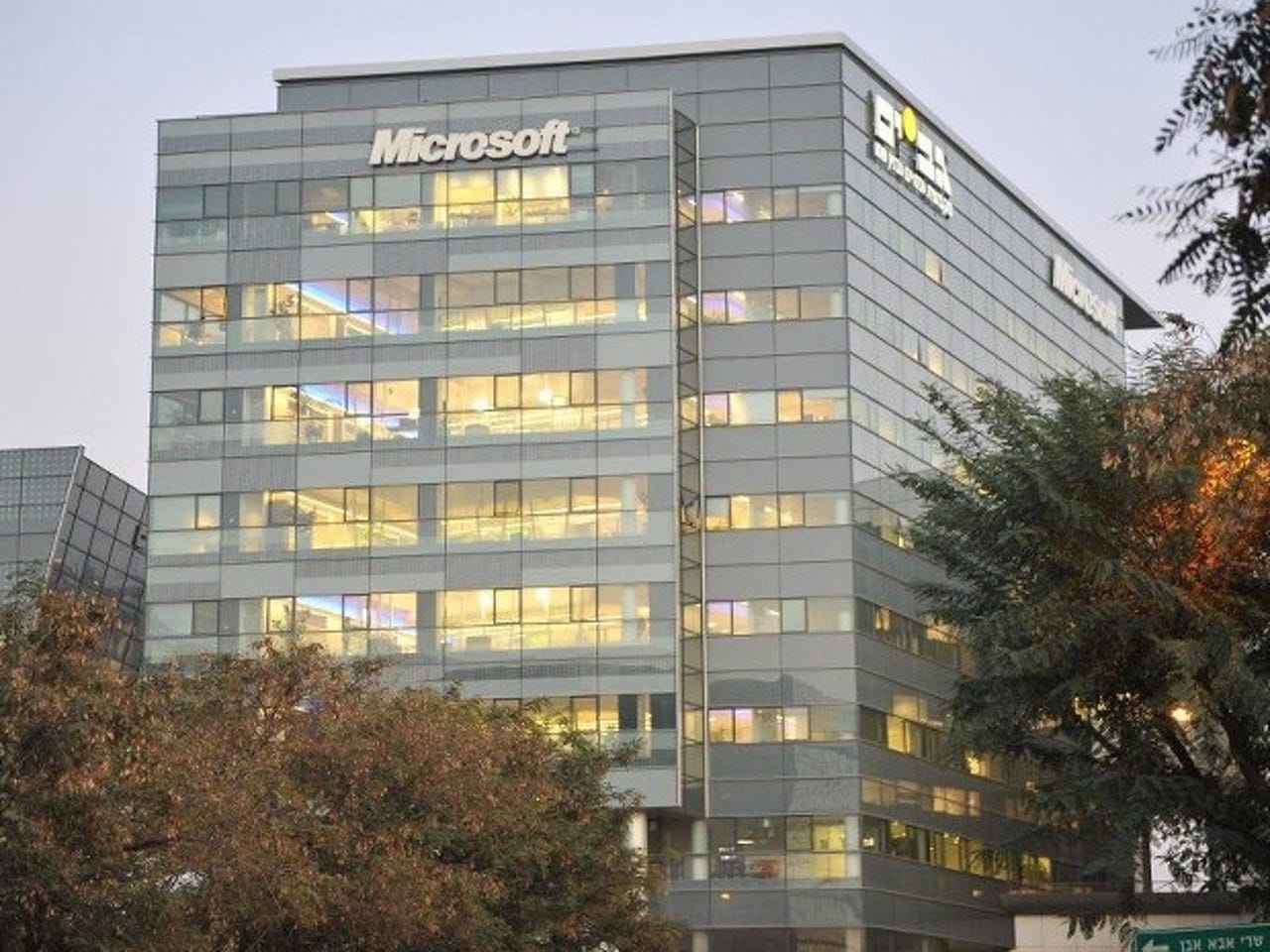A junior Silicon Valley: Microsoft Israel on start-ups, security and Steve Ballmer

Microsoft tends be perceived as a bit old-fashioned, the fuddy-duddy of the tech world – but it's not a perception that Zack Weisfeld, director of strategy and development at Microsoft's Israel R&D center, recognises.
"I know there are people who think of us like that, and frankly it's hard to battle consumer perceptions. But anyone who takes a good look at what we are doing here, and at the new products and technologies we are producing, will quickly change his or her mind," he said.

The Israel R&D centre is home to Microsoft's recently opened accelerator – a four-month long programme aimed at helping out early-stage start-ups working in the areas of cloud, web, and mobile. Called Accelerator for Azure, it's the first that Microsoft has established outside the US and will serve as the model for several others Microsoft is planning around the world.
The first accelerator group consisted of 11 companies – although more than 100 applied, according to accelerator director Hanan Lavy. Registration for the second group is in progress, with companies that successfully make it through to the accelerator receiving a $20,000 investment.
The accelerator will be working with teams from the Technion, Israel's top science school, and Professor Merrick Furst of the Georgia Tech College of Computing.
Furst has developed a set of scientific tools that will examine what a company is doing, and what it should be doing, at every step of its growth. Called Startup Engineering, the method sets a hypothesis about the value of a product or service, and tests that hypothesis by constant querying of customers, using scientific-method derived questions, polls, and techniques.
Based on the results, companies in the accelerator can change their models, markets, or products and services. The model has been tested at the Georgia Tech's own accelerator Flashpoint, and according to Weisfeld, has more than proven itself. The next intake of start-ups at Microsoft's Israel accelerator will be using the methodology when the second wave of the programme begins in mid-December.
Besides the start-ups associated with the accelerator, said Lavy, Microsoft execs meet with reps from more than 500 start-ups a year — all part of the company's effort to stay ahead of the tech curve.
"I know there are some people who look at Microsoft as yesterday's news, probably because we've been around so long," said Weisfeld. "No question about it, it's hard to compete with Apple and the other companies. But this is an amazing franchise, and we at Microsoft Israel are in this for the long haul."
Aside from the accelerator, the R&D centre houses product efforts in the fields of telecoms, security, web services and entertainment.
A history of R&D
Among the technologies to have come from Microsoft's Israel operations are back-end products like Microsoft's big data services and cloud technology, much of Microsoft's back-end security system for the company's websites and online services, and the company's gateway VPN technology.
On the front end, Microsoft's Security Essentials product "was developed end-to-end in Israel", while Kinect also uses Israeli-developed technology (from 3DV Systems, acquired by Microsoft in 2009, and PrimeSense, a top Microsoft strategic partner) for its 3D interface.
Much of the work on Bing's display ad technology — determining which ad shows up on which sites and when — is done in Israel, as is Bing Mobile, which the Israeli branch of Microsoft's Information Platform and Experiences (IPE) unit works on.
One interesting product that was developed by the Israel IPE team is called on{X}, an Android application and website that allows users to control and extend the capabilities of their phone using a JavaScript API to remotely program it. With on{X}, a user could, for example, tell their phone to do something like 'launch the Waze navigation app when my phone connects with my car's Bluetooth', or 'remind me to take an umbrella every day the first time I unlock my phone, if the weather forecast shows rain'.
Strategic site
All told, about 600 people work at the Israel R&D centre, which opened in 1991 — and was the first R&D centre for Microsoft outside the US. Notably, the centre was not built on the framework of a company Microsoft bought out; it specifically made a decision to do development in Israel.
Israel is considered in the company to be one of Microsoft's three top non-US strategic sites, besides India and China. And Microsoft Israel is expanding: earlier this year, the company announced that it was opening a new Technology Center (MTC) in the city of Ra'anana in central Israel. The Israeli MTC will be one of only a few dozen Microsoft has around the world, further cementing the strong ties between the company and Israeli high-tech.
"And we are deeply connected to what is happening at headquarters in Redmond, as well," says Weisfeld.
Microsoft chairman Steve Ballmer is scheduled to tour Microsoft Israel himself when he comes here in the autumn for several Microsoft technology events, scheduled for almost immediately after the release of Windows 8. Weisfeld adds: "Steve Ballmer calls us 'a junior Silicon Valley.'"